Independents: Setting Themselves Apart
Retailing horticultural products has come a long way in a short time. Do you remember when you produced handwritten signage? Now we have educational, brand-oriented, vibrant, professionally made signs. Do you remember when we sold monoculture hanging baskets and people loved them? Now we have mixed containers, well-designed combination hanging baskets along with color bowls for every season. Do you remember when plants were the only component of a garden? Now garden accessories are just as important because the yard “needs” arbors, fountains and furniture.
Mass merchants and independent garden centers have both adopted these retail upgrades, yet the independent garden centers have the advantage of enhancing the consumer’s experience. This advantage is not threatened by the mass merchant, but it is threatened by the consumer’s perception of price and convenience.
Embracing The Independent
To be successful, independents must embrace their ability to connect with consumers at a deeper level than the mass merchants do. We know if retailers avoid staying current and if they are not continually improving and evolving to meet the needs of their customers, the customers will shop elsewhere. This resistance to change provides an opportunity for competitors to move in and provide consumers with what they seek.
One way to guarantee success in this new retailing world is to identify and take advantage of the opportunities before your competition does. Many of these opportunities involve offering “extras” in your store. Extras include additional services, educational opportunities and even complimentary samples of products for customers.
Being a garden center in the information age means customers are looking to learn as much about your products as they can while also acquiring knowledge about gardening. Making these additional opportunities available in your garden center sends the message to customers that you care about their gardening success and appreciate their business.
Finding Customers’ Needs
The saying that “little things go a long way” is true on an individual level and in the business world. Customers tend to appreciate that little extra attention they are given, which will help them feel more like an individual and less like a sales figure. Given more personal attention, customers in your garden center will tend to have a more memorable experience, which should encourage store loyalty. Yet on those busy Mother’s Day and Memorial Day weekends, it is nearly impossible to give every customer that personal attention. Nonetheless, there are ways to acknowledge that your store and employees care about your customers and want to help meet their needs even on busy days.
A method of finding what your customer needs is simply to ask them. If you do not carry the plant or product they’re looking for, take note. One way to keep track of these needs is by developing a “customer wish list.” If your store has a customer service counter, have a customer wish list available for your shoppers’ needs and desires. Provide an area where customers can jot down their names, phone numbers and desired products.
Instead of uttering that negative response, “We don’t carry that item,” train your employees to say, “Sorry, I don’t believe we carry that; however, if you would like to write down that item on our customer wish list, we can try and get that for you.”
You’ll then want to periodically review the list and try to locate these items for your customers. If it’s impossible or not economical to fulfill a request, give the customer a call regardless to let him or her know you tried. Follow-up phone calls can also be used to remind customers about your store, promote an upcoming store event or invite them in to shop again.
The effort you put into this and the time spent trying to make your customers happy is rewarded with a long-term customer relationship. Managing this list annually, if not seasonally, will allow you to spot potential trends in consumer demands.
Providing Extras
What other services or opportunities can you provide in your store? Featuring plants with care tags is only a start in providing customers with all of the tools they need to create a thriving and beautiful landscape. Try incorporating a few extras into the shopping experience to assure success with their gardens.
One idea for an “extra” is a soil sampling kit. A good time to offer these kits is early spring, when they can be distributed and returned to your store and processed by the state’s soil testing lab. Check with your county extension office to see if they sell these kits. For example, through the Michigan State University Extension service, these kits cost $14, which includes all the tools and instructions needed to take a soil sample.
Customers can return their soil samples to your store by a specific date to be picked up by the extension service and delivered to the soil lab. The soil sample results are then mailed directly to the customer. However, unless you are a soil scientist, interpreting these results can be confusing and the recommended soil amendments are hard to match up with retail products. To better accommodate your customers, offer to review their soil results with them and help gather the recommended amendment products. This equates to return visits to your store and additional product sales.
Another service-based extra is setting up a fertilizer water dispenser in your garden center. Offer customers free fertilizer water, provided they bring their own jugs. Don’t limit yourself to just one concentration or fertilizer type; perhaps offer houseplant and bedding plant solutions. Enhance this new service by providing information on how often to fertilize; which plants are high, low or specialized feeders; and what types of fertilizers are available. Knowledge is power, and the more information you supply to them, the more resources they have to go on, thus the better gardeners they become. In addition, this service station will encourage repeat visits by your customers.
A popular retail extra is the mixed container planting and design area. Have one of your creative employees staff this area full time during the busy season. This way he or she can plant mixed containers for customers and answer questions about plant combinations. Also encourage gardeners to bring in their own containers to be potted up or have them utilize your potting area to create their own combination containers. Advertise it as “keeping the mess at the store while you enjoy the beauty at home.” Send them home with a jug of your garden center’s fertilizer water or a sample packet of slow-release fertilizer, and they’ll want to come back to do this every year and possibly every season.
Another idea to create customer loyalty is to have a yearly open house to get gardeners excited about the upcoming growing season. Your sales representatives can be called in for your open house to answer questions regarding the products they sell. Feature a new product showcase or display the new gardening trends for the year. If you are a grower/retailer, have tours of your facility. Throughout the season, you may want to start a Saturday morning seminar series. To encourage parents to attend your garden seminars, offer a children’s garden club at the same time.
All these ideas encourage your customers to come back to your store throughout the year. Remember, it is easier to convince your current customers to come back and shop again than it is to advertise and draw in new customers. Besides, the word-of-mouth advertising you will receive can become one of your biggest marketing campaigns.
Setting Yourself Apart
One final thought: don’t forget customer appreciation. Take your mother’s advice and write thank you notes. As garden centers switch to these fancy new point-of-sale computer systems, the information collected can really become useful. If you are collecting customer addresses on your register system, use the information to write or print a handful of thank you notes or post cards, whether they are for high-end customers or maybe some of your new customers. Try and make this a weekly priority.
Also, personal phone calls to follow-up on large purchases can really go a long way. What a great way to show that you care and appreciate your customers. Keep finding ways to set yourself apart from the mass merchandisers, and work on devel-oping the personality of your store while reminding customers to come and shop throughout the year.

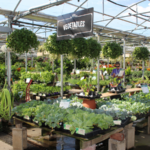




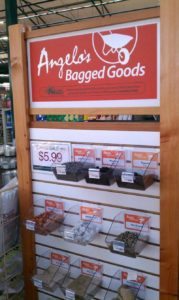
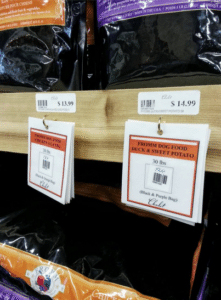
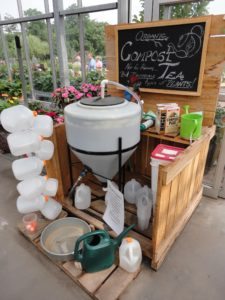
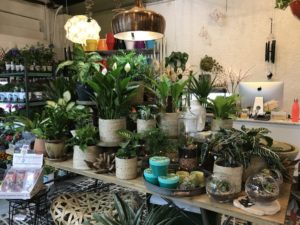
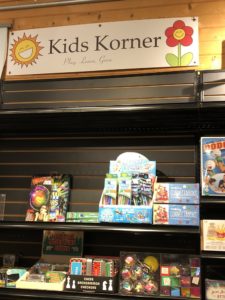
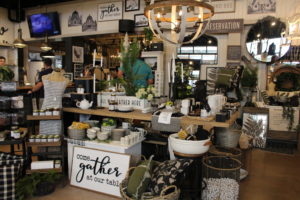
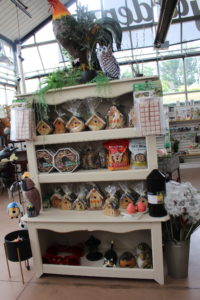
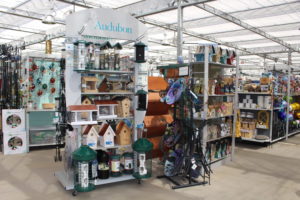
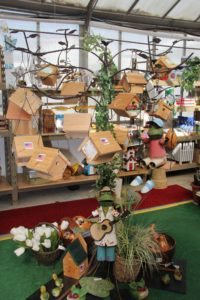

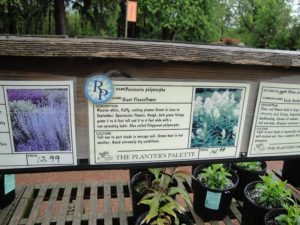
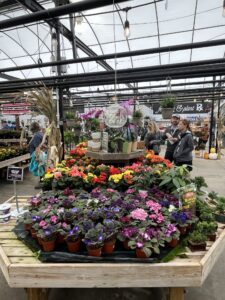
 Videos
Videos





